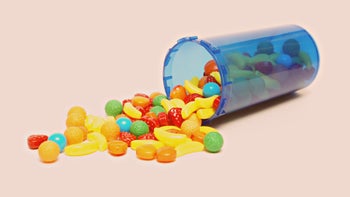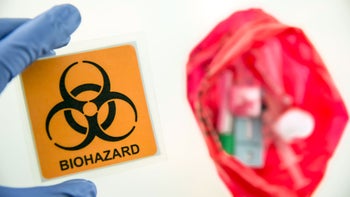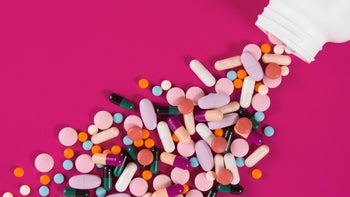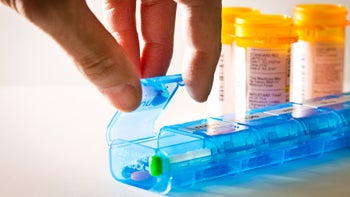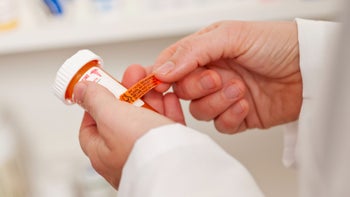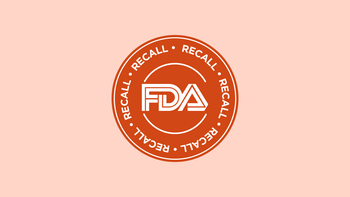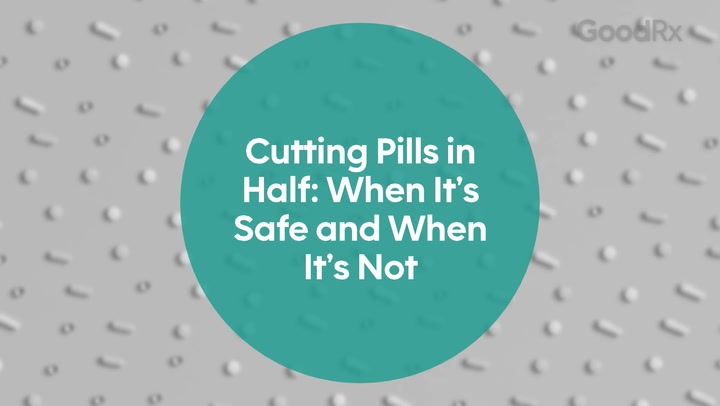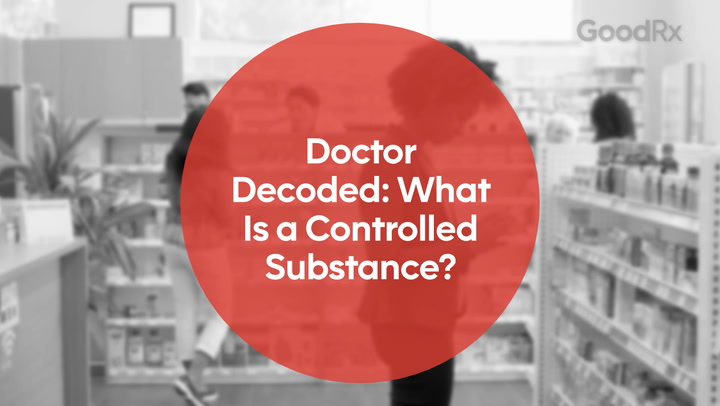
10 Medications You Shouldn’t Mix With Alcohol: Azithromycin, Sudafed, Mucinex, and More
Key takeaways:
Alcohol has many effects on the body and can be dangerous to mix with many prescription drugs. Common examples include pain medications, anxiety medications, and sleep medications.
There are some medications that are less risky to mix with alcohol but still not recommended. Examples include azithromycin (Zithromax) and pseudoephedrine (Sudafed).
If you’re taking medication, it’s important to speak with your healthcare provider about how much alcohol may be safe for you to consume.
Many people across the world drink alcohol. In 2019, about 70% of adults in the U.S. said they drank alcohol in the past year. That same year, over 45% of the population reported taking a prescription medication in the past 30 days.
Drinking alcohol at social events and gatherings is common. But it’s important to know how much is safe to drink when taking medication.
What happens when you mix alcohol with medications?
Alcohol can have many short- and long-term effects on the body. Mixing prescription drugs with alcohol can be dangerous because the two can interact in different ways. Drinking alcohol with some medications can:
Make the medication less effective
Make the medication toxic to your body
Make side effects from the medication worse
Cause new symptoms and make you feel ill
Make you feel more tipsy from the alcohol
Alcohol’s effect on the body changes with age. For older adults, it takes longer for the body to break down alcohol, leading to lower tolerance levels. Older adults are also more likely to take medication. So they have a greater chance of experiencing interactions between alcohol and medication. Additionally, women have higher blood alcohol levels than men after drinking the same amount of alcohol. Therefore, women should take extra caution when drinking alcohol in general.
Below, we discuss 10 medications that can cause harmful effects when mixed with alcohol. But keep in mind these aren’t the only medications that can be dangerous to take when drinking.
Take our quiz
Should you scale back your alcohol intake?

Medications that shouldn’t be taken with alcohol
There are certain medications that are riskier to mix with alcohol. This is why it’s important to be honest with your healthcare provider about how much alcohol you regularly drink. They may use this information to choose which medication to prescribe you.
1. Pain medications
Opioids are prescribed to treat severe pain. Examples include hydrocodone/acetaminophen and oxycodone (Oxycontin, Roxicodone). Combining alcohol with these medications can cause life-threatening drowsiness and trouble breathing. Before taking an opioid, speak with your healthcare provider if you regularly drink alcohol. They may prescribe an alternative pain medication.
If you’re taking over-the-counter (OTC) pain relievers, such as ibuprofen (Advil, Motrin) or naproxen (Aleve), drinking alcohol isn’t recommended. The combination can increase the risk of serious side effects, such as stomach ulcers and bleeding. Taking too much acetaminophen (Tylenol) while drinking alcohol can cause liver damage.
It’s important to speak with your healthcare provider about what the safe amount of alcohol to consume is, especially if you take these OTC medications regularly.
2. Anxiety medications (Ativan, Xanax) and sleeping pills (Ambien, Lunesta)
Drinking alcohol with anxiety medications or sleeping pills may lead to serious consequences. Alcohol and these medications have similar effects on the brain. This combination raises the risk of dangerous side effects like extreme drowsiness and slowed breathing.
Examples of anxiety medications include:
Lorazepam (Ativan)
Alprazolam (Xanax)
Diazepam (Valium)
Clonazepam (Klonopin)
Examples of sleeping pills include:
Zolpidem (Ambien)
Eszopiclone (Lunesta)
Zaleplon (Sonata)
3. Antidepressants and antipsychotics
There are different types of antidepressants. The dangers of drinking alcohol vary depending on the medication. For example, drinking alcohol with antidepressants like amitriptyline can lead to extreme dizziness and blackouts. Mixing alcohol with antidepressants like sertraline (Zoloft) can lead to worsened feelings of depression.
Other, more common side effects of combining alcohol and these medications include:
Drowsiness
Dizziness
Problems with movement
Liver damage
Serious heart effects
Mixing alcohol and antipsychotics, such as quetiapine (Seroquel), should also be avoided. Alcohol can worsen side effects and reduce the medication’s effectiveness.
4. ADHD medications (Adderall, Ritalin)
Medications that treat attention-deficit hyperactivity disorder (ADHD) — such as amphetamine salts (Adderall), methylphenidate (Ritalin), and lisdexamfetamine (Vyvanse) — can interact with alcohol. Drinking can worsen the side effects of these medications.
Possible effects of mixing ADHD medications and alcohol include:
Dizziness
Drowsiness
Poor concentration
Heart problems
5. Antibiotics (azithromycin, metronidazole)
Certain antibiotics shouldn’t be taken with alcohol. Most antibiotics come with a risk of nausea, vomiting, and diarrhea. And alcohol can worsen these effects. But, in some cases, drinking while taking antibiotics can lead to dangerous side effects, like heart problems or liver damage.
Some antibiotics you should never mix with alcohol include:
Metronidazole (Flagyl)
Erythromycin (Ery-Tab)
Sulfamethoxazole/trimethoprim (Bactrim)
Cycloserine (Seromycin)
Linezolid (Zyvox)
Cefotetan (Cefotan)
Tinidazole (Tindamax)
Azithromycin (Zithromax) is a commonly prescribed antibiotic. Drinking in moderation while taking this medication doesn’t seem to be dangerous. But it’s still best to avoid the combination when you can. Speak with your healthcare provider about azithromycin and alcohol before mixing them.
6. Nitrates and blood pressure medications
Drinking alcohol regularly can raise your blood pressure. This makes it harder for blood pressure medications to work. There are many blood pressure medications available. Chest pain medications, like nitrates, are also commonly prescribed heart medications. Drinking alcohol with these medications isn’t recommended.
Combining alcohol with either of these types of heart medication can raise the risk of:
Dizziness
Fainting
Drowsiness
A faster heartbeat or abnormal heart rhythm (arrhythmia)
7. Metformin and other diabetes medications
There are a variety of medications that are prescribed to treat diabetes. For Type 2 diabetes, one of the most common is metformin.
Metformin can raise the amount of lactic acid in your body. In very rare cases, this could lead to lactic acidosis, a potentially life-threatening condition. Metformin even has a boxed warning (the FDA’s strictest warning) about this side effect. Therefore, alcohol should be avoided when taking metformin.
And alcohol can interact with other diabetes medications in a different way. Drinking raises the risk of hypoglycemia (low blood sugar) in people living with diabetes. Adding medications to the mix raises the risk of this potentially dangerous condition even further.
Symptoms of hypoglycemia include:
Hunger
Fast heartbeat
Shakiness
Anxiety
Sweating
Dizziness
Drowsiness
Confusion
8. Warfarin (Coumadin, Jantoven)
In some cases, alcohol can have a dangerous effect when combined with warfarin (Coumadin, Jantoven). One of the side effects of warfarin is major bleeding. To help prevent this, people taking warfarin need to be closely monitored and sometimes have their doses adjusted frequently.
Drinking alcohol while taking warfarin can raise the risk of life-threatening bleeding. In general, it’s best to avoid consuming alcohol while taking this medication. But the occasional drink on holidays or during special occasions may be OK for some people. If you’re taking warfarin, ask your healthcare provider if any amount of alcohol is safe for you to consume.
9. Over-the-counter cold and flu treatments (Sudafed, Mucinex)
There are many OTC cold and flu remedies that can help you manage your symptoms at home. Two popular options are pseudoephedrine (Sudafed) and guaifenesin (Mucinex). These medications don’t have listed interactions with alcohol. But, in general, drinking alcohol when you’re sick may not be a good idea. Alcohol can weaken the immune system, making it harder for you to recover.
Other OTC cold medications, like Nyquil, cause drowsiness and dizziness as side effects. Combining them with alcohol can worsen these effects. And combination cold medications typically include a pain reliever, like acetaminophen or ibuprofen. As mentioned above, mixing OTC pain relievers and alcohol can lead to serious complications.
In general, if you have a cold or the flu, it’s probably best to hold off on having a drink until you’re fully recovered and no longer taking medication.
10. Erectile dysfunction medications (Viagra, Cialis)
The most common medications for erectile dysfunction (ED) include tadalafil (Cialis), sildenafil (Viagra), and vardenafil. The side effects of these medications vary, but they commonly include headaches, flushing, and vision changes. One serious side effect of ED medications is that they can drastically lower your blood pressure. This can make you dizzy or cause you to fall or faint.
Alcohol can worsen these side effects or make them more likely to occur. Heavy drinking can also worsen ED. So it’s recommended to avoid drinking alcohol when possible while taking ED medications. For some people, one or two drinks may be OK. But it’s best to talk to your healthcare provider first.
The bottom line
Alcohol consumption has many short- and long-term effects on the body. It can also interact with many medications. Pain relievers, anxiety medications, and certain antibiotics can be dangerous to mix with alcohol.
It’s important to be honest with your healthcare provider about how often and how much you drink. They can help you understand the risks of drinking alcohol while taking your medications.
If you or someone you know struggles with substance use, help is available. Call SAMHSA’s National Helpline at 1-800-662-4357 to learn about resources in your area.
References
American Heart Association. (2022). A patient’s guide to taking warfarin.
Centers for Disease Control and Prevention. (2022). Excessive alcohol use and women’s health.
Davies, M. (2003). The role of GABAA receptors in mediating the effects of alcohol in the central nervous system. Journal of Psychiatry and Neuroscience.
Foucher, C. D., et al. (2022). Lactic acidosis. StatPearls.
Martin, C. B., et al. (2019). Prescription drug use in the United States, 2015-2016. Centers for Disease Control and Prevention.
Mergenhagen, K. A., et al. (2020). Fact versus fiction: A review of the evidence behind alcohol and antibiotic interactions. Antimicrobial Agents and Chemotherapy.
National Institute on Alcohol Abuse and Alcoholism. (2018). Alcohol and the aging brain.
National Institute on Alcohol Abuse and Alcoholism. (2022). Alcohol facts and statistics.
Sarkar, D., et al. (2015). Alcohol and the immune system. Alcohol Research.
U. S. Food & Drug Administration. (2017). FDA warns about serious risks and death when combining opioid pain or cough medicines with benzodiazepines; requires its strongest warning.



